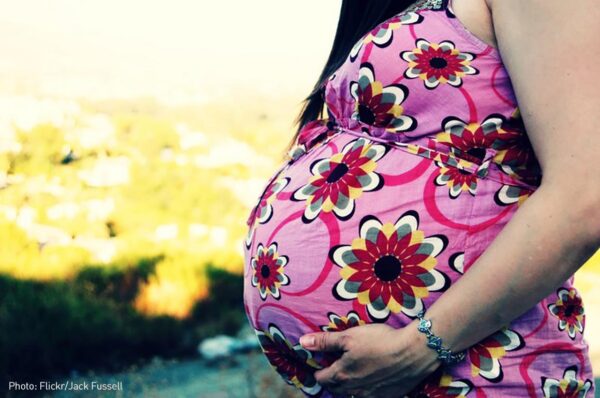Transgender West Virginia Teen Challenges Athletic Ban at Supreme Court
WASHINGTON – Attorneys representing a 15-year-old West Virginia transgender girl, Becky Pepper-Jackson, and her mother Heather Jackson today filed their response brief to the Supreme Court of the United States in their challenge to a 2021 West Virginia law barring Pepper-Jackson from participating on girl’s athletic teams. Becky and her mother are represented in West Virginia v. B.P.J by the American Civil Liberties Union, the ACLU of West Virginia, Lambda Legal, and Cooley LLP.
“I play for my school for the same reason other kids on my track team do–to make friends, have fun, and challenge myself through practice and teamwork,” said Becky Pepper-Jackson, 15, of West Virginia. “And all I’ve ever wanted was the same opportunities as my peers. Instead, I’ve had my rights and my life debated by politicians who’ve never even met me but want to stop me from playing sports with my friends. I know this case isn’t just about me, or even just about sports. It’s just one part of a plan to push transgender people like me out of public life entirely. I’m proud to stand up alongside my mom for what I believe and who I am and I want other transgender kids to know they aren’t alone.”
“I’ve always raised my children to stay true to themselves, no matter what anyone else tells them,” says Heather Jackson, mother of Becky Pepper-Jackson. “"I'm so proud of Becky and the young woman she's becoming, one who is hardworking, kind, and a team player. My daughter and every transgender kid like her deserves the freedom to be themselves and a future where no one is discriminated against just because of who they are.”
“This case is fundamentally about the ability of transgender youth like Becky to participate in our schools and communities,” said Joshua Block, Senior Counsel for the ACLU’s LGBTQ & HIV Project. “School athletics are fundamentally educational programs, but West Virginia’s law completely excluded Becky from her school’s entire athletic program even when there is no connection to alleged concerns about fairness or safety. As the lower court recognized, forcing Becky to either give up sports or play on the boy’s team–in contradiction of who she is at school, at home, and across her life–is really no choice at all. We look forward to defending her rights, and the rights of every young person, to be included as a member of their school community, at the Supreme Court.”
“Becky simply wants to be with her teammates on the track and field team, to experience the camaraderie and many documented benefits of participating in team sports,” said Lambda Legal Counsel, Nonbinary & Trans Rights Project Director, Sasha Buchert. “It has been amply proven that participating in team sports equips youth with a myriad of skills – in leadership, teamwork, confidence, and health. On the other hand, denying a student the ability to participate is not only discriminatory, but harmful to a student’s self-esteem, sending a message that they are not good enough and deserve to be excluded. In the end, can we not just let the kids play?”
The Supreme Court has also agreed to hear Little v. Hecox, a challenge brought by a transgender student against Idaho’s 2020 ban on transgender athletes and requirements for sex testing. The American Civil Liberties Union, the ACLU of Idaho, Legal Voice, and Cooley LLP represent the plaintiffs in this case.
The two cases charge the bans with violating the rights of transgender and cisgender female students under the Equal Protection Clause of the Fourteenth Amendment of the U.S. Constitution. In addition, West Virginia v. B.P.J. argues that the bans violate Title IX, the federal law prohibiting sex discrimination in educational programs. Federal courts have blocked enforcement of these bans in both lawsuits.
Since 2020, 27 states have banned transgender youth from playing school sports. Many of these bans allow for invasive forms of sex testing that put all female student-athletes at risk and embolden intrusive challenges to student athletes' sex.
In Florida, a 15-year-old junior varsity volleyball player was the subject of a police investigation after an anonymous accusation, prompting local officials to draft a 500-page report investigating her medical history, body weight, and anatomy. In Utah, a teenage basketball player was accused of being transgender by a member of the state board of education, leading to threats of violence against her and her family, and a teenager in Maine faced a similar attack from a state senator. In May, President Donald Trump similarly targeted a 16-year-old transgender girl for participating in a high school track meet. Under an Arizona ban, a cisgender male student was prohibited from participating on the boy’s team at his high school because of a clerical error that listed him as female on his original birth certificate.
Many women athletes have spoken out against bullying and discrimination against transgender student-athletes, including Billie Jean King, Megan Rapinoe, Dawn Staley, Sue Bird, and Brianna Turner, as well as leading organizations fighting for gender equality in athletics including the Women’s Sports Foundation, the Women’s National Basketball Player’s Association, and the National Women’s Law Center.
Today's brief in West Virginia v. B.P.J. can be found here.
Today's brief in Little v. Hecox can be found here.
These cases are part of the ACLU’s Joan and Irwin Jacobs Supreme Court Docket.
Court Case: West Virginia v. B.P.J.
Affiliates: West Virginia, Idaho


